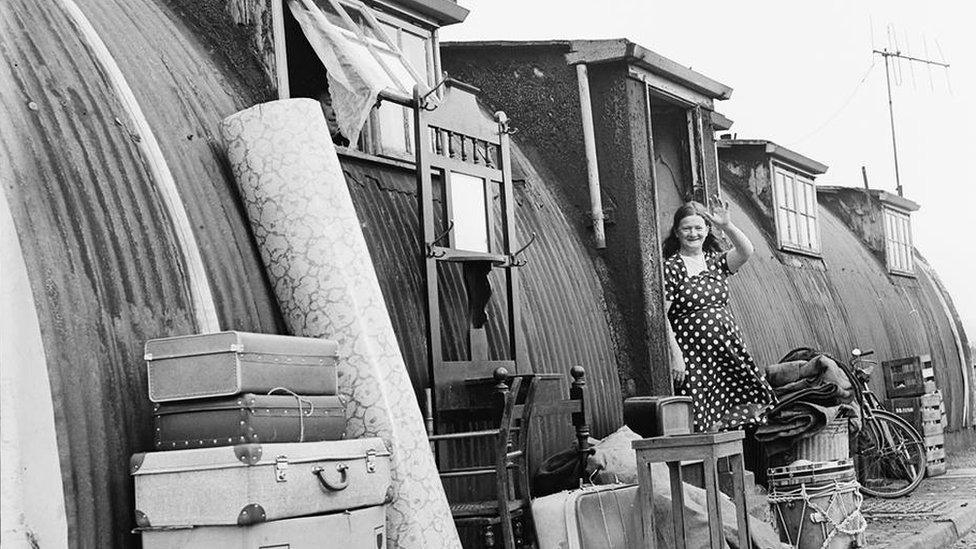Londonderry: '1968 march galvanised civil rights'
- Published
Civil rights march was 'vision of a shared Ireland'
A civil rights march in Londonderry 50 years ago "galvanised the movement for civil rights in Ireland," the Irish president has said.
Michael D Higgins was addressing a commemoration in the city of the October, 1968 march that ended in violence.
Police used batons and water cannon to break up the march, and dramatic images were broadcast around the world.
Mr Higgins also paid tribute to "the vision" of Nobel laureate John Hume.
He said it was "a vision of a shared Ireland, one that recognises the unionist and nationalist traditions, one that is capable of reconciling communities."
Mr Higgins said it was a vision that preserved human dignity and vindicated and expanded fundamental human rights.
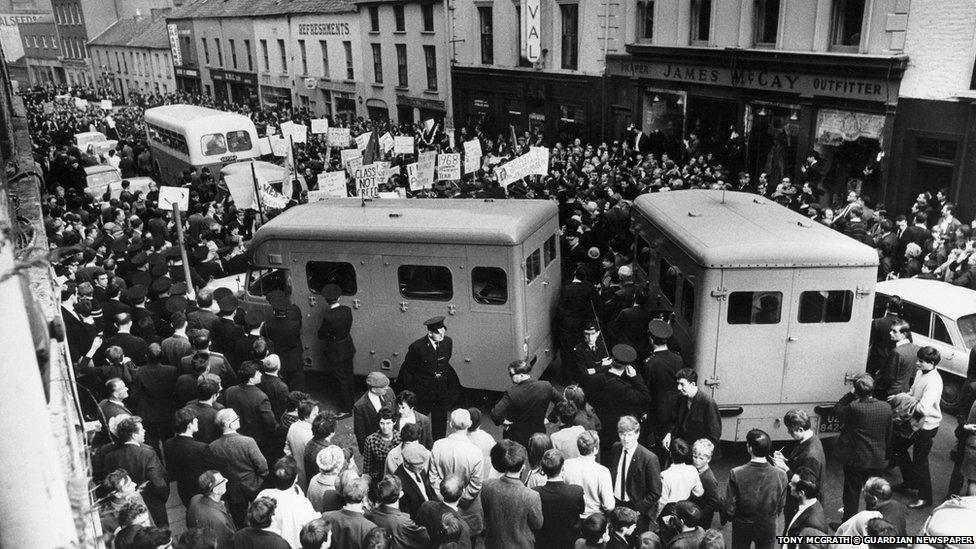
The civil rights march in Derry on 5 October 1968 is regarded by many as 'the day the Troubles began'
The 5 October 1968 Duke Street March in Derry had been organised by local activists, with the support of the Northern Ireland Civil Rights Association (NICRA).
NICRA had formed in 1967, and drew inspiration from the campaign for equal rights in the US. They demanded an end to gerrymandering and discrimination and called for "one man, one vote".
Their first march in Dungannon in August 1968 raised concerns around housing in County Tyrone, highlighted by one case, in particular, when a single Protestant woman was allocated a house ahead of Catholic families.
In October 1968, their attention turned to the unionist-controlled Londonderry Corporation, and its housing policy.
The previous day, the march was banned by the Northern Ireland government.
It went ahead, in defiance.
Officers from the Royal Ulster Constabulary (RUC) drew batons and beat marchers. They then used water cannon to disperse the crowd.
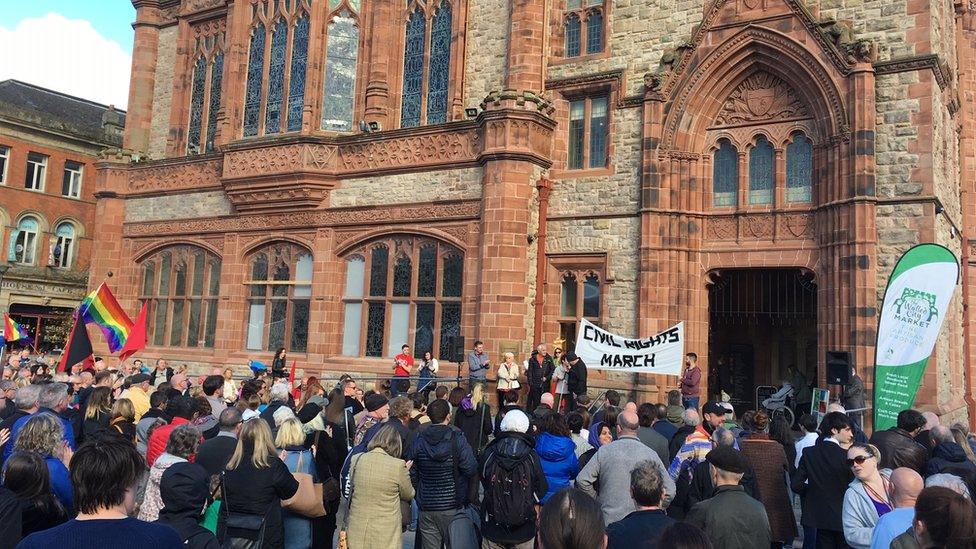
Scene outside the Guildhall on Saturday
The Irish president told those gathered in Derry's Guildhall on Saturday commemorating the march 50 years ago that he feared the contribution of Mr Hume and his "dogged persistence through the dark twilight years of the Troubles, might be eclipsed amidst the disputations of the contemporary moment."
That would be unjust, he said.
"If we remain true to that vision, we can not only sustain peace on our island, but can, together, confront the shared challenges of the future with confidence and courage."

John Hume, founder and former leader of the SDLP, pictured on the walls of his home city
President Higgins said he could still remember the television images of the 1968 march, and the actions of police on that day.
"The 5th of October march galvanised the movement for civil rights in Ireland," he said.
A series of events have been taking place in Derry to mark the anniversary.
At the Guildhall, civil rights leader Ivan Cooper was honoured for his role in the civil rights movement.
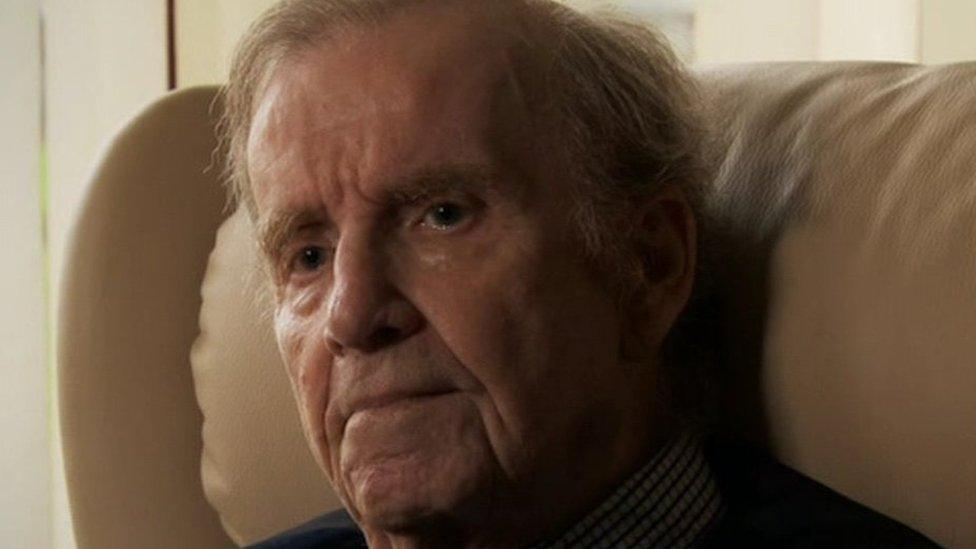
Ivan Cooper a passionate civil rights campaigner is forever linked to the events of Bloody Sunday in Derry
1968 march 'galvanised civil rights'
Politicians, journalists and academics have been sharing their memories and their views on that march at the commemoration.
Sinn Féin held a separate event in the city to mark the anniversary of the Duke Street march.
Party members and supporters walked through Derry to a rally in Guildhall Square.
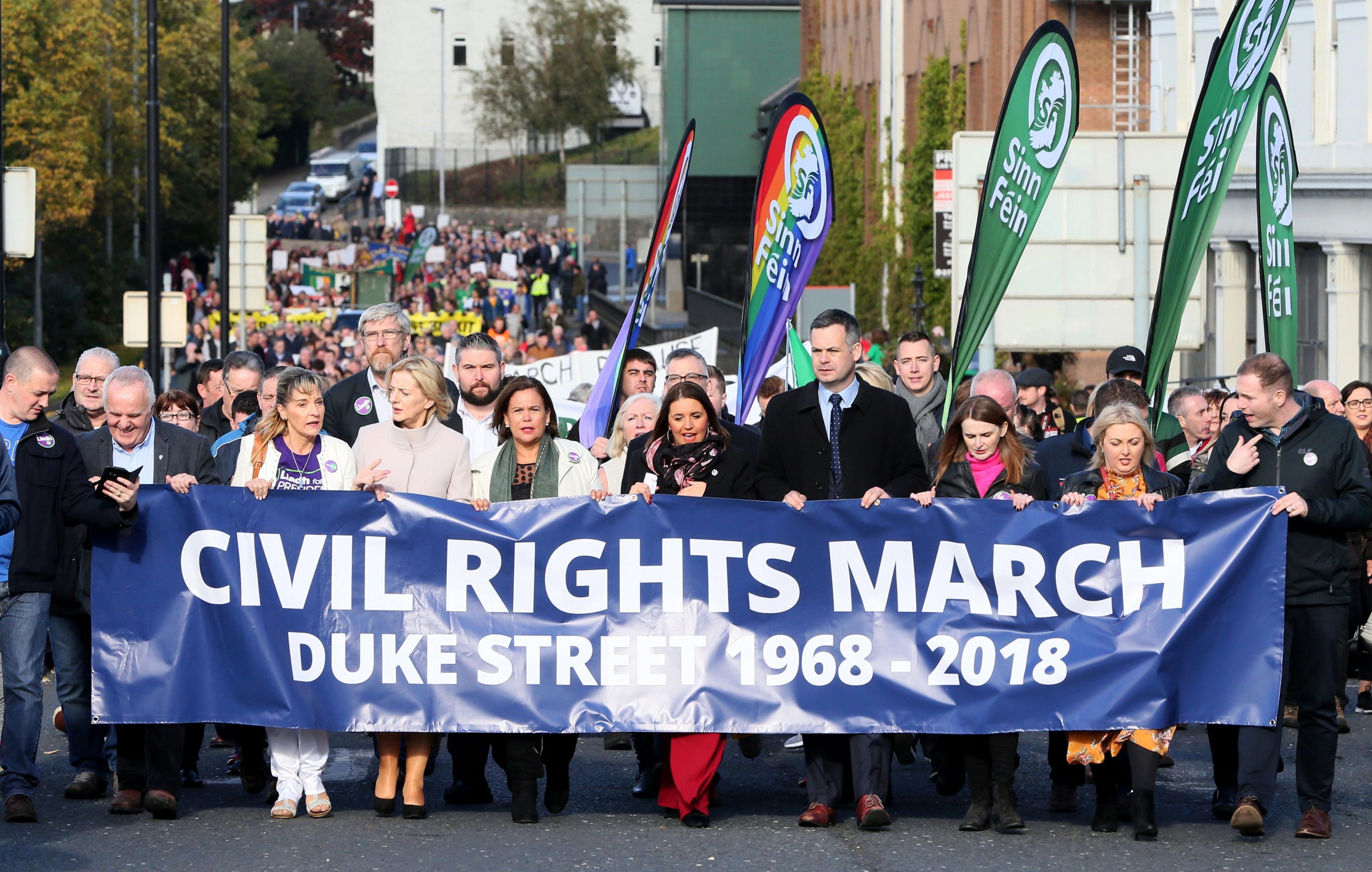
Sinn Féin held a rally in Derry to mark the 1968 civil rights march.
Mary Lou McDonald, the party president, said that "rights are not orange or green issues" and that the campaign for civil rights and equality "continues today".
'Complex period'
In Belfast, the Ulster History Project held a one-day conference focusing on the involvement and reactions of Unionism.
Dr Andrew Charles said that the Duke Street march was seen as a "mainly nationalist event, but it was an event that affected everyone's lives".
"I think a lot of people, particularly unionists, are likely to just bury their head in the sand and ignore it.
"It's a very complex period of our history and I think what we're doing here today is exploring that in some depth."
Liam Kennedy, professor of economic history at Queen's University Belfast, said: "I think it's important that nationalists and unionists, or those of us who don't subscribe to either of those two ideologies, are able to bring different views, interpretations, perspectives together and, out of that, we may actually learn something that is helpful in terms of our current politics."
This article was first published on October 6, 2018 - it was updated on October 9, 2018.
- Published30 September 2018

- Published5 October 2018
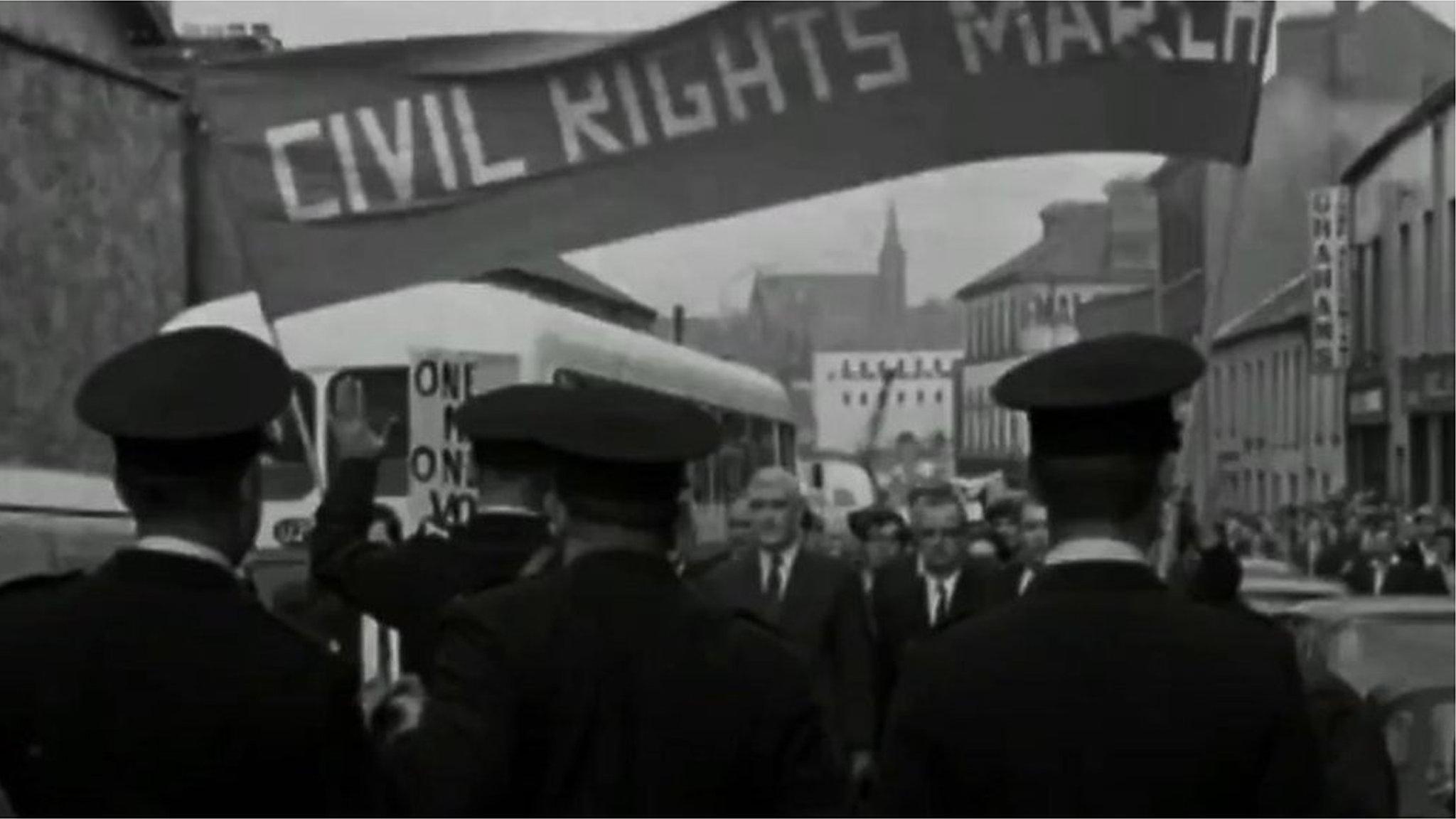
- Published18 August 2018
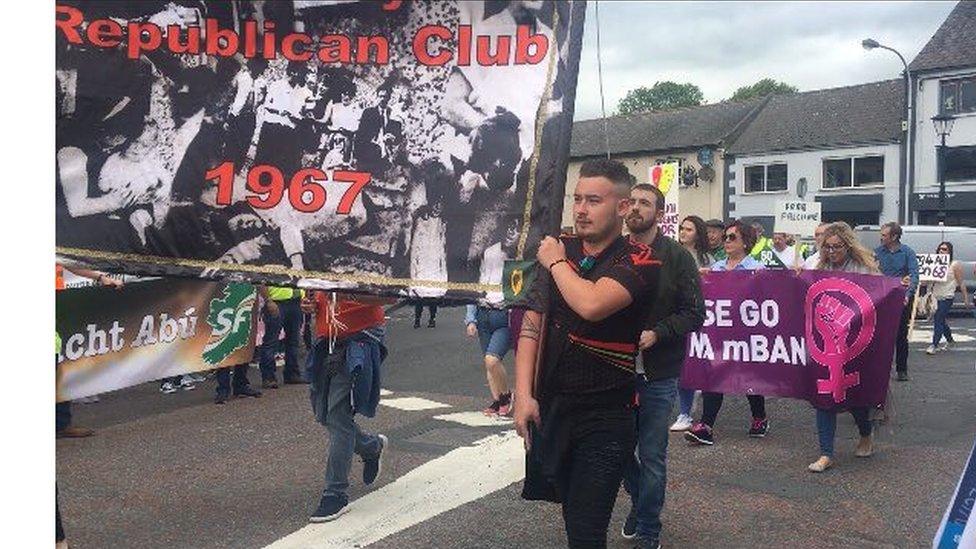
- Published19 April 2018
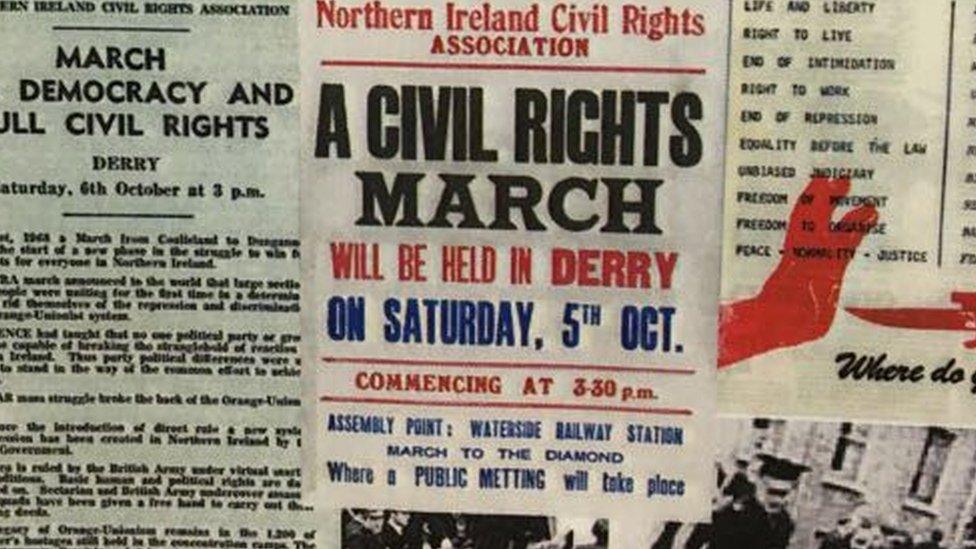
- Published6 May 2018
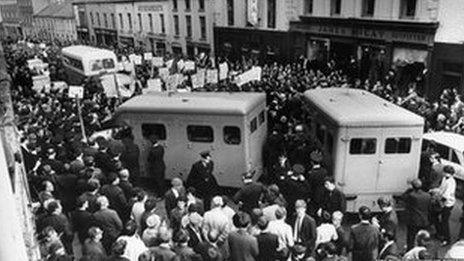
- Published14 October 2017
